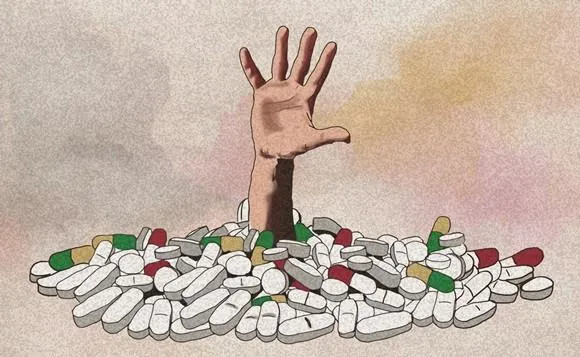Opioids in Our Libraries: Hennepin County Needs to Do Better

Minnesota is one of the worst states for racial inequality. So it shouldn’t be a surprise that Minnesota also has one of the greatest rates of disparity for opioid-related deaths based on race. Hennepin County public library workers have been seeing the reality of this, especially in libraries that primarily serve communities of color. In January 2018, a Franklin Library patron died at HCMC, after overdosing in the library restroom. Another patron overdosed the next morning in Franklin Library. Although this is absolutely heartbreaking, it was not surprising. It has become far too common for library patrons to overdose in Hennepin County libraries or on library property. As the opioid epidemic has exploded, public restrooms have become regular sites for drug injection, with all of the related public health issues that can raise. But library workers had few or no tools to deal with this safely.
In mid-2017, library workers had started bringing forward concerns about how opioid use was impacting their libraries. With a basic focus on safety, AFSCME Local 2822 began asking for sharps containers in public restrooms. What we thought would be an easy, common sense safety measure to protect library workers, contracted janitorial staff, and library patrons, was met with excuses. We were told that needles were found very rarely in buildings, which was not what library workers were seeing every day in their buildings. We were told that sharps containers would only encourage drug use, when there is no evidence this is true. We were even questioned as to why we were concerned with the safety of workers, like contracted cleaners, who aren’t in our union.
As we started digging deeper and reaching out to more frontline library work-ers, what we discovered became increasingly more concerning. We learned that some contracted cleaners did not seem to have the OSHA-required training to safely clean up bloodbourne pathogens or handle sharps. (Thank you to the library workers, who, on their own initiative, worked with janitors to make sure they were safe!) We discovered there was no consistent protocol for handling needles found in library buildings or on library property. We found that blood-bourne pathogen kits in libraries were often not fully stocked or were stocked with out-of-date supplies. It became clear that we needed action, and we needed it now.
With workers from some of the most impacted libraries, we put together a comprehensive list of demands to bring to our February Meet and Confer.
What we have gotten:
• A Sharps container pilot project in the public restrooms at North Regional, Franklin, Hosmer, and East Lake libraries (Minneapolis Central may soon be added to this list);
• The promise of updated bloodbourne pathogen kits with portable sharps containers for staff use, updated bloodbourne pathogen and sharps training, both online and in-person, for library staff;
• Staff education at three libraries from community resources.
What we will keep fighting for:
• Clear protocol, training, and appropriate equipment for sharps safety and disposal, and bloodbourne pathogen safety for ALL workers in ALL libraries (library, security, and contract security and cleaners);
• Sharps containers in ALL library bathrooms, permanently, NOT as a pilot project;
• Mental and emotional support and trauma-informed care for workers including: paid administrative leave for workers after traumatic events, the ability for workers to transfer if incidents become too traumatic, paid time off for work-related mental health support;
• Library-specific training on addiction and mental health to ensure the safety of our-selves and patrons, and to provide an ap-propriate response;
• Adequate staffing and building support to help make libraries safer spaces for all.
Dealing with addiction in our communities is not easy, but the choice to support people struggling with addiction and to protect the safety of workers and patrons should be an easy choice to make.
